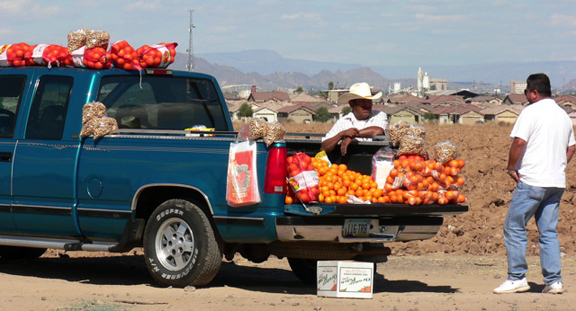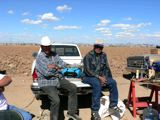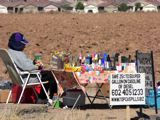|
|
|||||
Market by the Road on the Edge of South Phoenix
Aloysius CaneteSouth Phoenix is a place that one never gets bored. The streets are animated by colorful buildings, murals, graffiti and so on. Its landscape is interrupted by pockets of farm lands and more interestingly a juxtaposition of up-scale subdivisions and remnants of “old” neighborhoods. But what animated the place is its sense of unpredictability that one experiences as a flâneur roaming around the streets of South Phoenix.
This marketplace originally arose from “swap meets” where people bought and exchanged used goods; but now those are dedicated to new goods and have become too expensive to be worth it, says Ovaldo. He would rather sell at an informal market where the $40 he earned would go directly to his pocket. But it is interesting to note that Ovaldo does not do it for the income; he does it for the company and to meet friends. Obviously, street vending here is seen as a site for social interaction. But in addition to this, Ovaldo talks about street vending in opposition to staying in the home. As he says, “it’s not good to stay at home all the time.” This statment resonates with the point made by Rojas on plazas in Latin America as spaces for social interaction. In the absence of plazas in South Phoenix, street vending creates a space for Latinos like Ovaldo to mingle and interact with people, as they normally do in a plaza in Latin America.
24 March 2006 |
|||||




